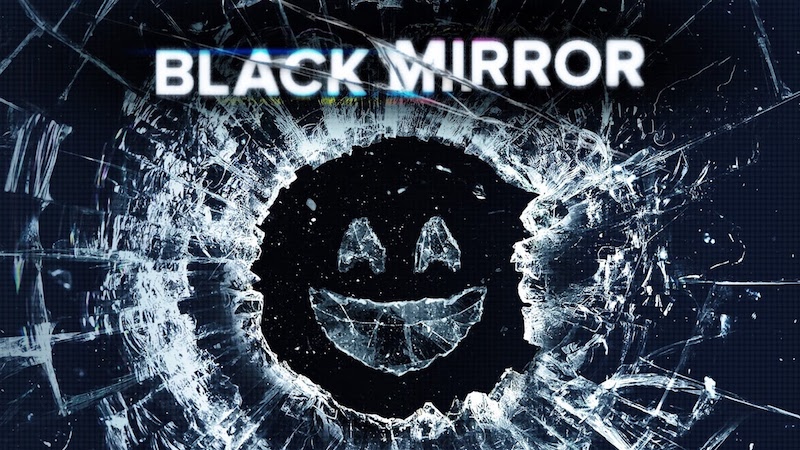Black Mirror: Has Technology Corrupted us? (What Are the Dangers of Technology?)
Episode #7 of the course Sci-Phi: Philosophy through science fiction by David Kyle Johnson, PhD
Every episode of Black Mirror is its own self-contained story that illustrates how technology can make our lives both better and worse. In “Arkangel,” a mother implants a monitoring device in her young daughter; the mother’s inability to stop using the device as the daughter grows eventually drives them apart. In “Men against Fire,” a useful neural computer implant called a MASS also allows the government to demonize minorities—literally making people see them as monsters (so as to make them easier to kill). In “White Bear,” memory-erasing technology allows the penal system to subject criminals to the same psychological horrors as their victims, again and again.
Last lesson, we saw why the development of androids might be dangerous: One day, they might turn on us. In this lesson, I’d like to use three episodes of Black Mirror to consider how already-existing technology might be corrupting us and society.
“The National Anthem”
In “The National Anthem,” someone kidnaps a British princess (named Susannah) and threatens to kill her unless the Prime Minister has “full unsimulated sexual intercourse with a pig” on live TV. Unable to catch the kidnapper, the Prime Minister goes through with it. It takes him an hour to finish. The kicker: The kidnapper committed suicide and let Susannah go 30 minutes before he started … but since everyone in the world was glued to their TV, ready to watch him have sexual intercourse with a pig, no one noticed!
The point is clear: You thought the kidnapper was the sick one? He didn’t even want to watch it. But we did! We’re the sick ones! And global media, which would undoubtedly broadcast such an event worldwide, is not only profiting off of our most base and disgusting of instincts but also feeding and amplifying them.
“Nosedive”
In “Nosedive,” people are rated during their social interactions (both on and offline), and their overall rating is used to determine their accessibility to society—what apartments they can have, what flights they can take, what jobs they can have, etc. The story follows Lacie Pound, who, after a series of mishaps on her way to deliver a speech at her friend Naomi’s wedding (which she thinks will get her up to a 4.5), ends up all the way at 0 and in jail.
The story beautifully illustrates Jean-Paul Sartre’s concern about something he called “the look.” “Hell is other people,” Sartre argued in his play, No Exit, suggesting that our constant preoccupation with how others look at us—which objectifies and dehumanizes us—haunts us to the point that it makes life like hell. And technology, like the rating tech in “Nosedive” or real-life social media platforms (like Facebook and Twitter), has us more preoccupied than ever, constantly trying to project our preferred persona onto the world. The only solution seems to be to unplug, as Lacie is forced to do at the end of the episode, and stop caring about what others think, something that would subject us to seclusion … just like Lacie at the end of the episode.
“Hated in the Nation”
In “Hated in the Nation,” a swarm of electronic bees are “hacked” such that, each day, whoever gets the most “#deathto” hashtags on Twitter is attacked and killed by the bees. The story follows the investigative team trying to stop it, as they discover that the hacker intends to reverse the hack and have the bees kill everyone who used the hashtag.
The episode serves as a condemnation of both “trial by mob” (in which people are found guilty by popular opinion without a proper trial) and “bullying” (where insults and other abuses can drive people to commit suicide). The negative effects of both have been amplified dramatically by the use of social media. Interestingly, although the episode was released long before the #MeToo hashtag became popular on Twitter, it could be seen as commentary on it (both positive and negative). Indeed, the similarity between “#DeathTo” and “#MeToo” is almost spooky.
The latter two episodes are thought to have inspired “Majority Rule,” an episode of Seth MacFarlane’s sci-fi show, The Orville, in which a society is governed, and even science-decided, by a pure democracy conducted online. False news stories (that no one ever bothers to fact check) and science denial runs rampant. But The Orville tackles much more than this, and it is to The Orville that I would like to turn next.
Recommended reading
“China’s ‘Social Credit’ Brings Us One Step Closer to Black Mirror’s Dystopian World” by John Lucas
Share with friends

